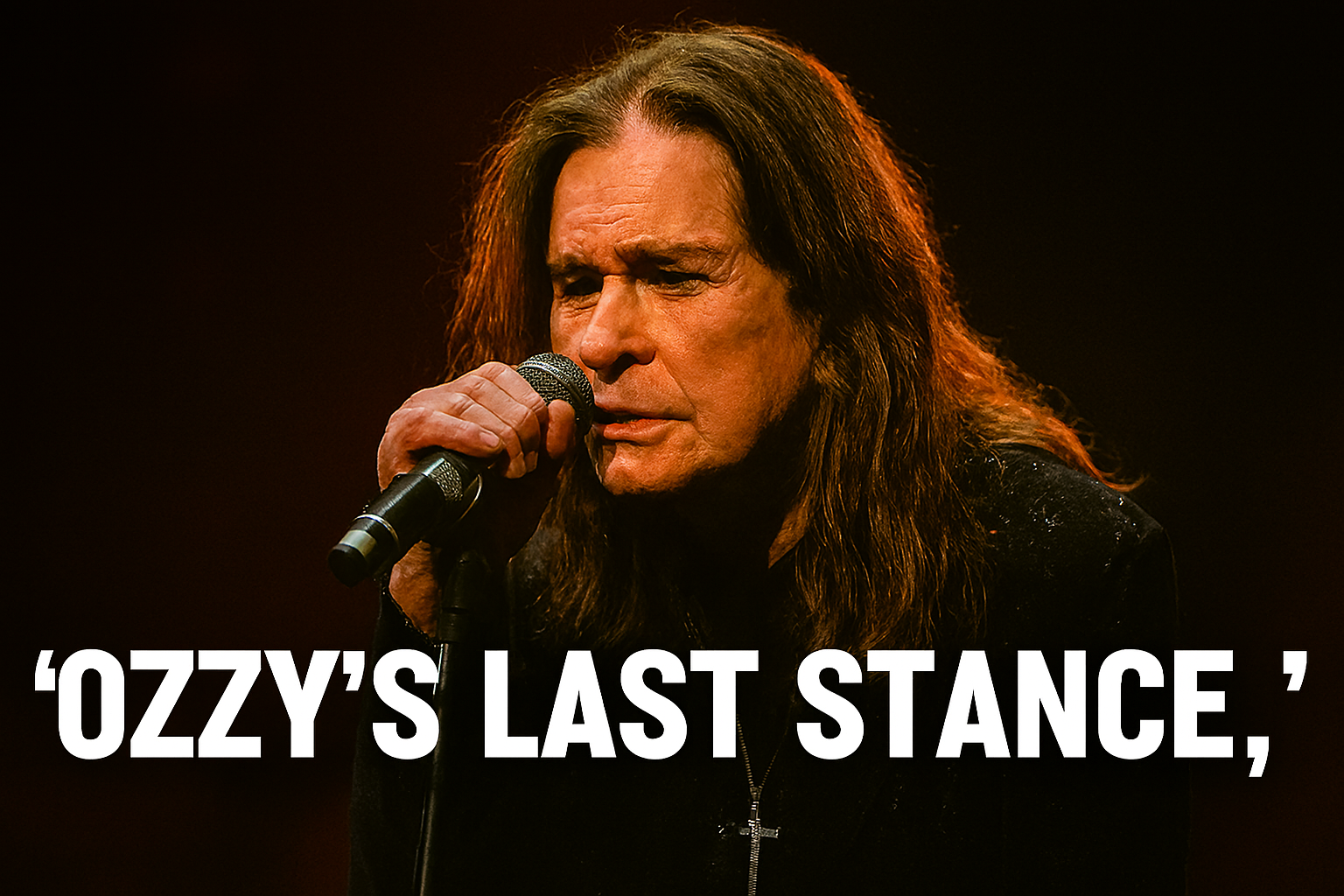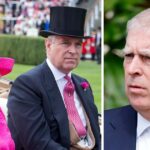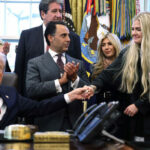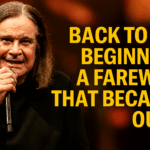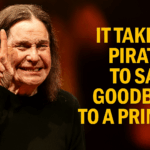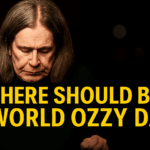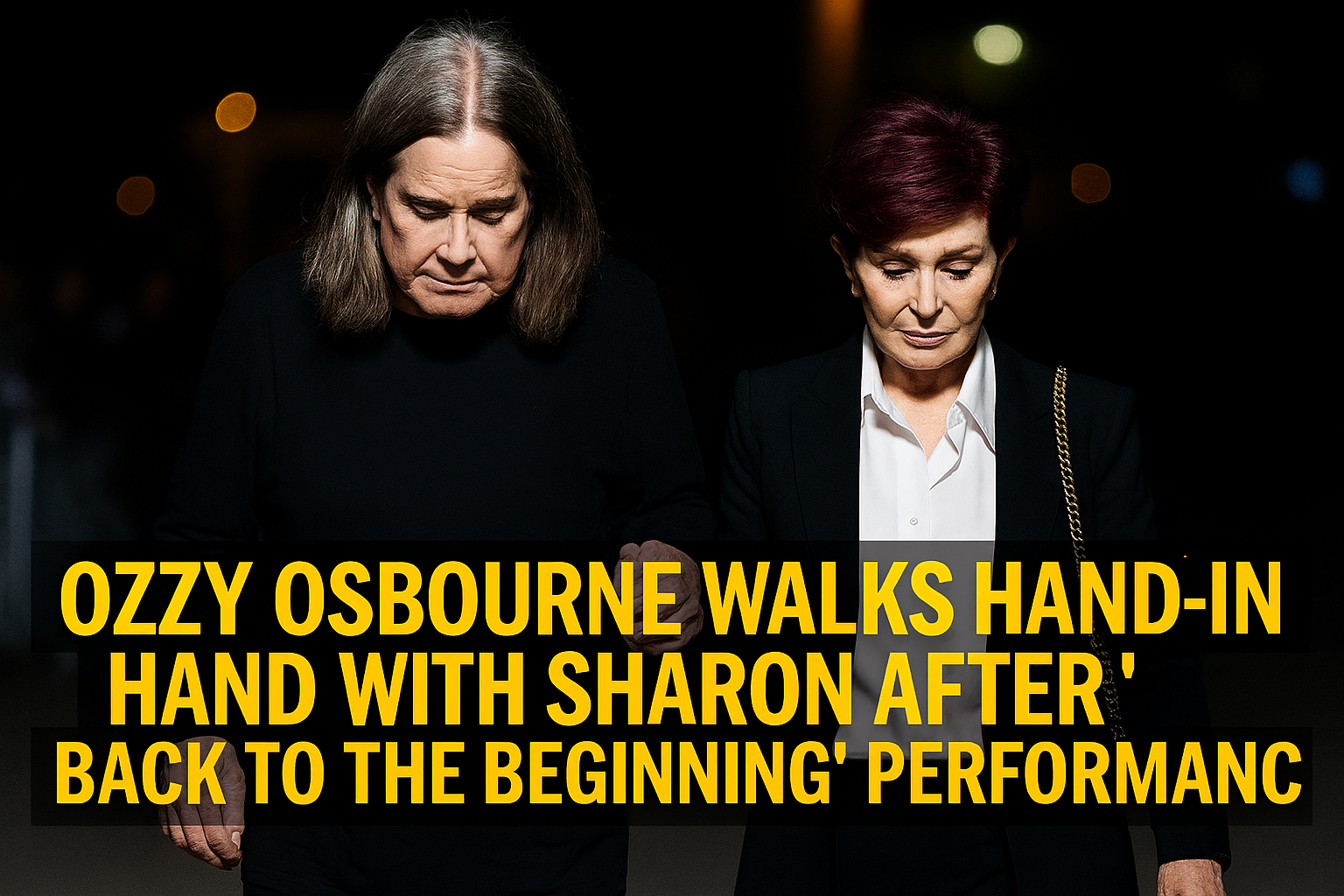Did he sound like the Ozzy we all know and love? No. Did he have the same energy we’ve come to expect over the last several decades? Not quite. But did it matter? Absolutely not.
Because on that night, thousands gathered not to critique a performance, but to honor a legacy. They came to celebrate a rock god. To witness the final stance of a man who changed music forever. Ozzy Osbourne didn’t need to be perfect—he just needed to be present. And he was.
The atmosphere was electric, not because of flawless vocals or wild theatrics, but because of what Ozzy represented. He was the embodiment of rebellion, survival, and transformation. From the dark, heavy riffs of Black Sabbath to the solo anthems that defined generations, Ozzy’s journey was never about polish—it was about power. And even in his final moments on stage, that power was undeniable.
Fans knew what they were walking into. Ozzy’s health had been declining. His voice had aged. His body moved slower. But none of that dulled the impact of seeing him live one last time. Every gesture, every lyric, every glance toward the crowd carried decades of meaning. It was history unfolding in real time.
There was a reverence in the air. People weren’t just watching a concert—they were participating in a farewell. They sang along, they cried, they cheered. Some held up signs. Others wore vintage tour shirts. Everyone understood the gravity of the moment. This was Ozzy’s goodbye, and they were lucky enough to be part of it.
The setlist was a journey through his career. “Crazy Train” roared with nostalgia. “War Pigs” echoed with defiance. And “Mama, I’m Coming Home” hit like a final embrace. Each song was less about performance and more about presence. Ozzy didn’t need to hit every note—he just needed to be there, and he was.
His band supported him with grace. The musicians knew their role wasn’t to outshine, but to uplift. They gave Ozzy space to breathe, to reflect, to connect. And he did. Between songs, he spoke to the crowd—not with rehearsed lines, but with raw emotion. He thanked them. He smiled. He looked out and saw generations of fans who had stuck with him through it all.
And they gave it back. The love pouring from the audience was overwhelming. It wasn’t just admiration—it was gratitude. For the music. For the madness. For the memories. Ozzy had been part of their lives, their youth, their identity. And now, they were giving him a send-off worthy of a legend.
Critics might dissect the performance. They might point out the missed notes, the slowed pace, the lack of energy. But they’d be missing the point. This wasn’t about technical perfection. It was about emotional truth. Ozzy stood on that stage as a man who had lived, who had struggled, who had triumphed. And he shared that with the world.
It was a reminder that legends aren’t defined by flawless execution—they’re defined by impact. Ozzy’s impact is immeasurable. He helped birth a genre. He inspired countless artists. He survived battles that would’ve broken most. And he did it all with a style that was uniquely his.
As the final notes rang out, the crowd erupted. Not in critique, but in celebration. They weren’t saying goodbye to a performer—they were saying goodbye to a piece of themselves. To the soundtrack of their youth. To the voice that screamed through their speakers and into their souls.
Ozzy raised his arms, smiled, and took it all in. It wasn’t just a bow—it was a moment of connection. A final exchange between artist and audience. A mutual recognition of everything that had come before.
And then, he walked off. Slowly. Quietly. Leaving behind a stage that had seen decades of chaos, brilliance, and transformation.
